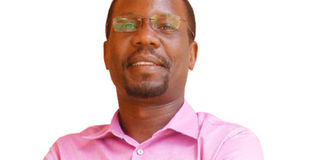Journalism without fear or favour — that’s easier said

In times of crisis such as the Covid-19 pandemic now obtaining, you want accurate information to flow. You, therefore, trust that everyone will exercise common sense and do the right thing. But, because of social media, the good and the bad have mixed to form a toxic information environment that means more uncertainty for the already scared masses.
This is when journalists, acting at the highest professional and ethical levels presumably, are needed to help the wananchi make sense of what the hell is going on.
Yet journalism remains a problematic undertaking. World Press Freedom Day is today, May 3. According to Unesco, the global entity in charge, the day “acts as a reminder to governments of the need to respect their commitment to press freedom and is also a day of reflection among media professionals about issues of press freedom and professional ethics… It is also a day of remembrance for those journalists who lost their lives in the pursuit of a story.”
Like many events during these Covid-19 times, there will be no physical meetings. Events have either been postponed — like the global one on the safety of journalists and media capture that will now happen in October — or are being held online as is happening in Uganda.
A wily Yoweri Museveni recognises the place of the media. He has attacked the media for decades for basic political ends, but he recognises that when dark clouds mass the media offer an essential service.
He also figures out that he will not be President forever even if that’s his pursuit. The end may come sooner. Tens of thousands of dead bodies and a dead economy would contribute to his already shaky legacy — people remember big, bad things, and especially when they happen toward the end of one’s long career. The President has said he does not care about legacy, but he does.
Why else does he go on and on about the need for East Africa to federate if it is not because he wants to be thought of for ages as a pan-African visionary? So, if a dodgy virus threatens to stand in his way, he is ready to make amends with traditional enemies like the media. (Museveni is no Trump. Wink).
In this sense Mr Museveni has shown himself to be quite enlightened — the initial violations which prompted an April 3 protest letter from the broadcasters’ association to the National Task Force on Covid-19 notwithstanding.
Not so some of his brother presidents near and far. According to the International Press Institute, as of Thursday last week, there had been 32 media freedom violations in Africa (the global number is 162) directly linked to Covid-19 coverage.
In Tanzania, it appears president John Magufuli’s onslaught against the media from when he was elected in 2015 has gathered pace under Covid-19.
On April 21, Amnesty International issued a statement, whose first two paragraphs read: “Tanzanian authorities on April 20 suspended Talib Ussi Hamad, a journalist with the Tanzania Daima daily newspaper, for six months simply for reporting on Covid-19, the latest in a string of attacks on the right to freedom of expression, access to information and media freedom during the pandemic.
“Talib Hamad’s suspension comes just days after the Mwananchi daily newspaper had its online licence suspended after it posted a photo of president John Pombe Magufuli out shopping surrounded by a crowd of people, eliciting online discussion on the country’s approach to addressing Covid-19.”
The government said the picture pre-dated Covid-19. Mwananchi was fined $2,200. “Three other media organisations — Star Media Tanzania Ltd, Multichoice Tanzania Ltd and Azam Digital Broadcast Ltd — were on April 2 each fined the same amount and ordered to apologise for ‘transmission of false and misleading information’ on the country’s approach to managing Covid-19.”
Things aren’t good in Rwanda as well. Quoting Human Rights Watch, RFI news agency reported on April 30 that at least “four bloggers were arrested in Rwanda earlier this month for violating the government’s directives, as they tried to cover coronavirus lockdown measures.”
Some governments, whether in Hungary or Rwanda, stand accused of using the pandemic to cage independent media and political opponents.
According to RFI, one of the journalists arrested in Rwanda is Dieudonné Niyonsenga, also known as Cyuma Hassan, director of Ishema TV. He was arrested after completing an investigative report on the “impact of Rwanda’s lockdown measures on locals in poor districts.”
The theme for this year’s World Press Freedom Day is “journalism without fear or favour.” Okay, but whose job is it to ensure journalism is conducted without fear or favour today and tomorrow?
Bernard Tabaire is a media trainer and commentator on public affairs based in Kampala.
[email protected]
Twitter:@btabaire




